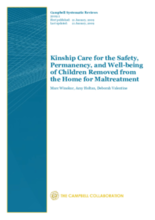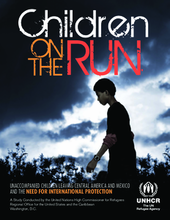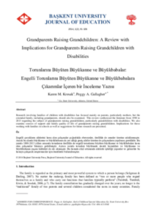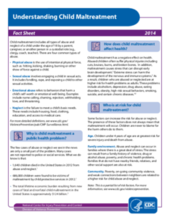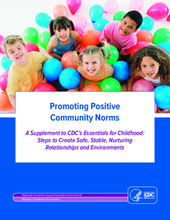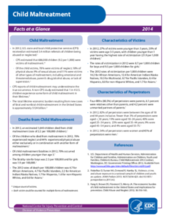Displaying 2071 - 2080 of 2221
The aim of this literature review was to critique the state of the research on the effects of implementing parenting programmes in shelters for homeless families. A comprehensive search of multiple databases yielded 12 studies for inclusion.
This study examines the prevalence of maternal and paternal spanking of children at 3 and 5 years of age and the associations between spanking and children's externalizing behavior and receptive vocabulary through age 9.
This systematic review published by the Campbell Collaboration reviewed controlled experimental and quasi experimental studies in which children removed from the home for maltreatment and subsequently placed in kinship care were compared with children placed in non-kinship foster care for child welfare outcomes in the domains of well-being, permanency, or safety.
This report, issued by the United Nations High Commissioner for Refugees, examines the situation and needs of unaccompanied children who emigrate from Central America and Mexico to the United States, and offers recommendations based on those needs.
Escape the Box is an initiative designed to help raise awareness and try to put a stop to the rapidly growing, money making businesses that many orphanages have become.
After the cancellation of the 2013 US National Child Welfare Evaluation Summit, the Children’s Bureau decided to develop short videos as a means of sharing ideas and issues that could not be presented at the conference. The result is the Virtual Summit Series, a group of 17 videos that combine illustration, animation, motion graphics, and content from national experts.
This review synthesized the literature from 1990 to 2013 regarding the subject of grandparents raising grandchildren, particularly grandchildren with disabilities.
This brief factsheet from the U.S. National Center for Injury Prevention and Control of the CDC provides an overview of child maltreatment.
This guide serves as a supplement to the United States CDC guide “Essentials for Childhood: Steps to Create Safe, Stable, Nurturing Relationships and Environments.” It provides guidance on creating a context for increasing safe, stable, nurturing relationships and environments for children and families by promoting positive community norms.
This brief factsheet from the National Center for Injury Prevention and Control presents current data on child maltreatment in the United States.

